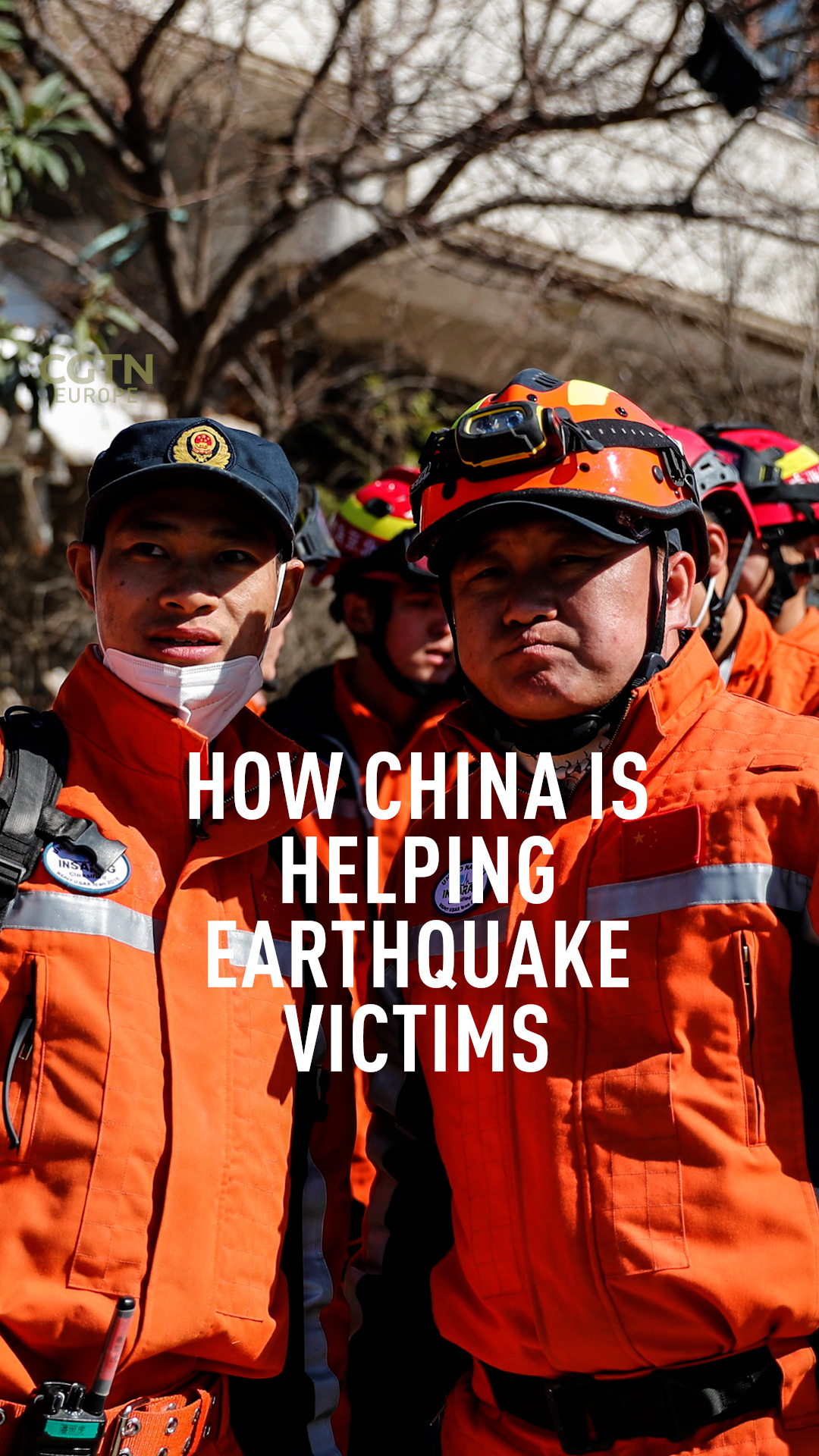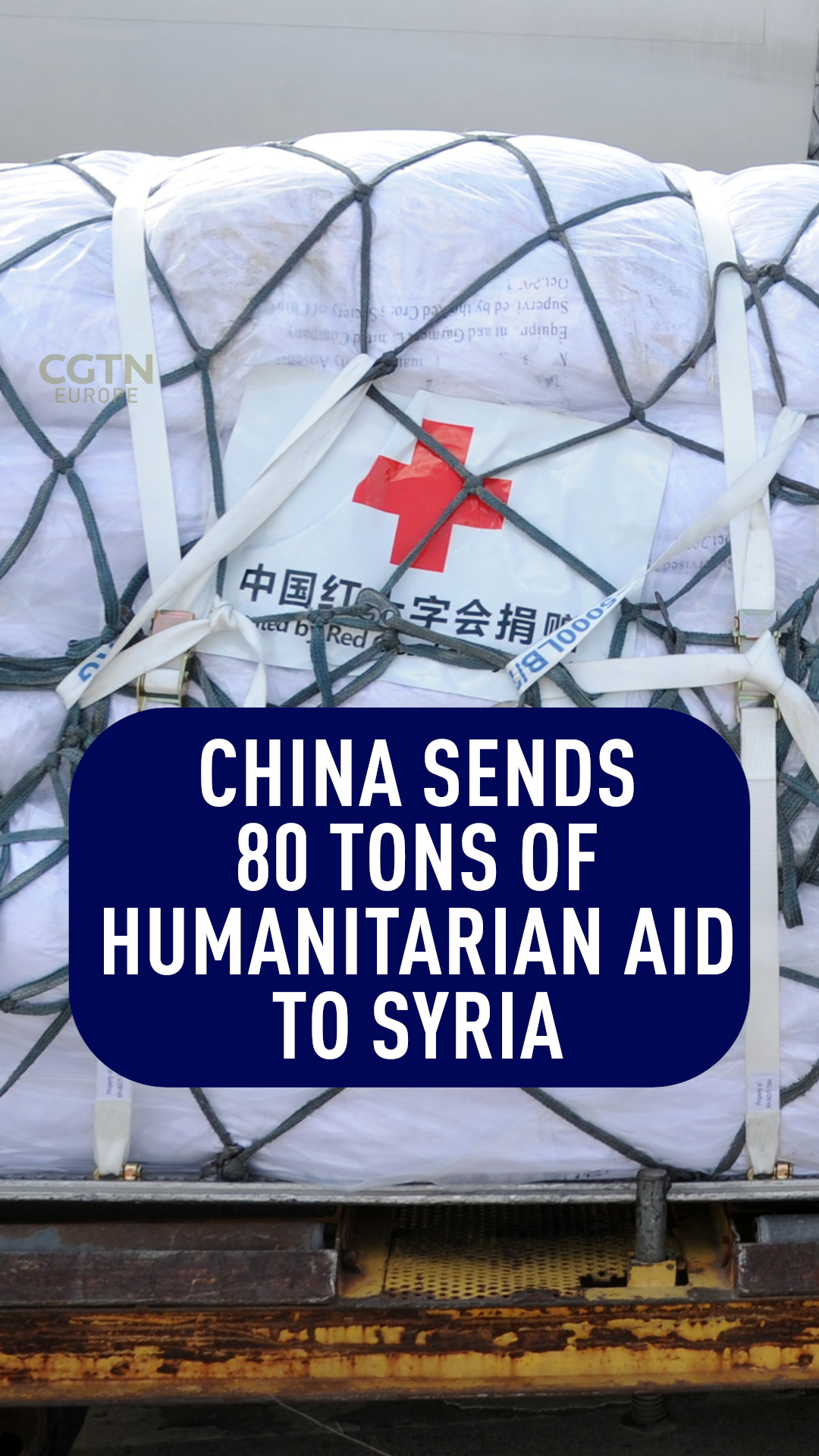
Fatma was pulled from the rubble in Hatay on Tuesday, but rescuers are shifting focus to survivors who have been left homeless. /Clodagh Kilcoyne/Reuters
Fatma was pulled from the rubble in Hatay on Tuesday, but rescuers are shifting focus to survivors who have been left homeless. /Clodagh Kilcoyne/Reuters
Hopes of finding survivors from last week's devastating earthquakes are fading, despite two women being pulled from the rubble in the Turkish city of Kahramanmaras, as the focus switches to helping survivors.
Rescuers applauded and embraced on Wednesday as an ambulance carried away a 74-year-old woman rescued after more than nine days trapped under debris. Earlier in the day, a 46-year-old woman was saved in the same city, near the epicenter of the quake.
The combined death toll in Türkiye and Syria has risen above 41,000, with millions in need of humanitarian aid after many survivors were left homeless in near-freezing winter temperatures.
READ MORE
World's smartest dog breeds revealed
Poll: U.S. should lift Syria sanctions for disaster
The Secret Betrayal: China's WWII sailors
There are now only limited numbers of rescue workers centered on recovering people from the rubble.
In Kahramanmaras, one of the regions hit hardest by the quakes, many have been forced to live in tents outside while sanitation infrastructure has been damaged or left inoperable by the earthquakes.
00:43

Health authorities now face the daunting task of ensuring survivors remain disease-free amid water shortages and pollution.
"We haven't been able to rinse off since the earthquake," said Mohammad Emin, a 21-year-old graphic design student who is currently living in a tent in an open-air stadium in the region's capital. There are just six toilets in the sports venue, where hundreds of families are sheltering.
The World Health Organization's representative in Türkiye warned that the water shortage in quake-hit areas "increases the risk of waterborne diseases and outbreaks of communicable diseases."
With fears of looming cholera and typhoid epidemics, aid workers are urging authorities to focus on clearing the debris and sanitizing the disaster zone to avoid deadly outbreaks.
00:59

Meanwhile, the government encouraged people to go back home, if and when authorities have deemed their building safe, "in order to start getting back to normal," Tourism Minister Nuri Ersoy said,
"We will quickly demolish what needs to be demolished and build safe houses," Türkiye's Environment and Urbanization Minister Murat Kurum tweeted.
Turkish authorities also announced on Wednesday that they had arrested 78 people accused of creating fear and panic by "sharing provocative posts" about the earthquake on social media, adding 20 of them were being held in pre-trial detention.
Civil war blights Syrian aid deliveries
In Syria, the civil war continues to blight aid deliveries, leading to the obstruction of at least two attempts to send aid across frontlines into the hard-hit northwest.
However, an aid convoy reached the area overnight. Trucks loaded with blankets, food, medical supplies and tents arrived in the rebel-held northwest from a region controlled by the Kurdish-led Syrian Democratic Forces.
Shi Hongwei, China's Ambassador to Syria, said that China had sent a huge package of 30,000 first aid kits, 20,000 blankets, 10,000 padded jackets and 300 tents – as well as ventilators, anesthesia machines and oxygen generators.
Parts of the provinces of Idlib and adjacent Aleppo held by Türkiye-backed rebels have suffered the worst of the quake in Syria. More than 4,400 of an estimated 5,800 deaths in Syria have taken place in the region, according to UN and government estimates.
01:17

The World Health Organization said on Wednesday it was particularly concerned over the welfare of people in the area due to their lack of aid.
"It's clear that the zone of greatest concern at the moment is the area of northwestern Syria," WHO's emergencies director, Mike Ryan, told a briefing in Geneva.
"The impact of the earthquake in areas of Syria controlled by the government is significant, but the services are there and there is access to those people. We have to remember here that in Syria, we've had ten years of war. The health system is amazingly fragile. People have been through hell."
Subscribe to Storyboard: A weekly newsletter bringing you the best of CGTN every Friday
Source(s): Reuters